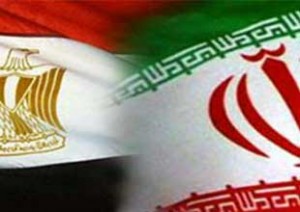 Egypt’s Culture, Information and Tourism Committee recently witnessed a series of disagreements between MPs about the issue of Iranian tourism in Egypt, with altercations breaking out between Freedom and Justice Party (FJP) and Al-Wasat MPs on one side, and Al-Nour MPs on the other.
Egypt’s Culture, Information and Tourism Committee recently witnessed a series of disagreements between MPs about the issue of Iranian tourism in Egypt, with altercations breaking out between Freedom and Justice Party (FJP) and Al-Wasat MPs on one side, and Al-Nour MPs on the other.
Altercations began after Al-Nour party MP Muhammad Hanafi said that “Iranians believe that Egyptians are the product of incest”. The altercation developed into scuffles.
Earlier in the debate, Yehia Abul Hassan, an Al-Wasat MP, said: “Israel and the United States are the only other countries in the world to have completely cut off relations with Iran”.
Suleiman Atwi, the Committee’s Commission Agent, said: “We need to study the extent to which Iranian tourism will affect national security.” Atwi added that “every tourist that enters the country creates a work opportunity for our citizens. We therefore need to review and reach a decision on this situation as quickly as possible.”
Ahmed Nasr al-Din, an Al-Nour member, said that Iranian tourists posed security dangers for Egypt: “The Shi’a platform is destructive, and Iran is more dangerous to the Islamic nation than even the Jews. It is the most corrupt doctrine, and represents a lesser version of Islam.”
“Without Iran the United States would not have invaded Iraq or Afghanistan. We forbid the extension of Shi’a influence into Egypt. We seek to stand closer to God, and we must struggle to convert Egypt’s Shi’a minority, bringing them into the Sunni fold,” he added.
Gamal Heshmat of the FJP disagreed: “Many people come to Egypt who have ‘insulted’ Islam, but our dialogue regarding tourism must take place outside the confines of culture, doctrine or tradition within Egypt.” He then called for the issue to be brought before the High Scholars Authority at Al-Azhar.
Minister of Tourism Hisham Zaazou said last week that the Ministry of Tourism was aiming to attract 200,000 Iranian tourists per year to guarantee $250m annually in revenues, adding that “Egypt should take a piece of this pie”.
He added, however, that Iranians will be visiting the country under tight security regulations, and that they will be barred from visiting Shi’a sights such as the Al-Husayn and Sayeda Zeinab Mosques in Cairo.
Salih Sayigh said: “We must take into account Iran’s greed and its character as a Shi’a nation. We must study the situation with objectivity and from within an empirical framework.”
Tharwat Atalllah stated that the Shi’a are “a threat to Egypt’s national security”, adding that “one of the benefits of the old regime was that it did not have relations with Iran, and I hope that the current regime does not seek to change that fact.”
He added that Iran “seeks to establish a Persian Empire”.
Al-Nour Party MP Abdul-Jalil al-Qasim said that the idea of Shi’ism strikes at the heart of Islamic doctrine. Shi’a, he said, believe that Abu Bakr and Amr and Othman are all currently in hell, and that the Prophet Muhammad’s marriage to Aisha was outrageous and a crime. He claimed that the Shi’a do not love the prophet nor his people and they want to destroy the Islamic religion.
“It is well known that Iran has imperial aspirations in the Arab world, particularly in Egypt, and that they seek to instigate conflict throughout the region. How can we allow them to do so?” he asked.
He went on to say that Iran was more dangerous than even Jews, and that Iranians used money and women to pursue their goals. He added that Egyptians would not accept Iranian tourists and that he and others would stand firm on this issue. Egypt would become a focal point of terrorism if Iranians were to be let into the country, he said.
On 1 April more than 50 Iranians visited Egypt, the first official group of Iranians to visit the country for tourism in decades. The group arrived in Upper Egypt amid tightened security.
The visit came as part of a bilateral tourism agreement signed in February after Iranian President Mahmoud Ahmedinejad’s historic visit to Egypt.
After a few days, however, Zaazou decided to put Iranian tourist trips to Egypt on hold until mid-June.
By Daily News Egypt
The Iran Project is not responsible for the content of quoted articles.

 QR code
QR code